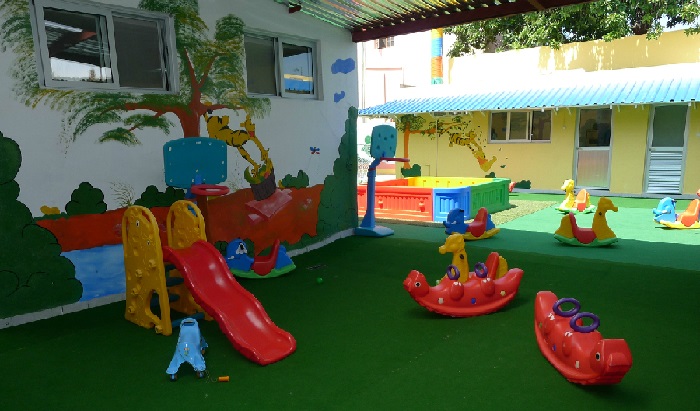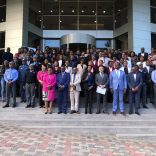Mozambique: Fear of organ trafficking hinders a young man's dream of living without fear of the sun
Mozambique: Government eases some Covid-19 restrictive measures – Watch

Image: TVM
Mozambican President Filipe Nyusi on Wednesday night announced that the government is relaxing several of the restrictive measures imposed to halt the spread of the Covid-19 respiratory disease – but warned that this does not mean that the pandemic is over.
“The virus is implacable”, he said. “It does not offer truces”. Basic protective measures such as regular washing of hands, wearing of masks in public, and social distancing must remain in place, as the country adjusts to what has become known as “the new normal”.
Easing of restrictions was possible, Nyusi said, because of improvements in key indicators – the number of new cases of Covid-19 diagnosed, as well as the number of deaths and hospitalisations, had fallen sharply in the past month.
The President announced that pre-school education may resume, but only in cases where creches or nursery schools comply strictly with health regulations. The Ministry of Children, Gender and Social Welfare is charged with monitoring these institutions.
Creches closed, along with every other type of school, in April 2020. This year, schools and universities have gradually been reopening, but pre-school education had remained closed.
The government also authorized the re-opening of large and medium sized gymnasiums, but they may not exceed 40 per cent of their maximum capacity. Small gyms, however, remain closed.
Public swimming pools may also re-open, but at no more than 30 per cent of capacity. Swimmers and walkers may now once again enjoy the country’s beaches – but Nyusi warned that the consumption of alcoholic drinks, and the gathering of large crowds, on the beaches remain forbidden.
The curfew in all sizeable cities and towns remains in force, but will now run from 23.00, rather than 22.00, until 04.00 the following morning. This, the government believes, will allow workers and students ample time to return home before the curfew begins.
This was a demand made by the Confederation of Mozambican Business Associations (CTA), which argued that the early curfew (beginning initially at 21.00 and later at 22.00) made life difficult for commercial establishments which closed at 17.00, and whose workers, because of the shortage of transport, could not return to their homes before the curfew began.
Bottle stores, and other shops selling alcohol, may now open from 09.00 to 17.00 (rather than 13.00) Monday to Saturday, but must remain closed on Sundays and public holidays. Restaurants may remain open until 21.00 rather than 20.00 on all days. But all bars, and stalls whose main business is the sale of alcoholic drinks, must remain closed.
At funerals, the maximum number of people attending has been increased from 20 to 30. But, in cases where the deceased died from Covid-19, the limit remains ten people.
At religious services, the number of worshippers may not exceed 40 per cent of the capacity of the premises, and no more than 75 people in an enclosed space, and 150 in open areas,
At State events, the number of people allowed to attend rises from 100 to 150 – but Nyusi said this limit may be exceeded “in cases of an imperative nature, as long as they are duly justified”.
To avoid crowds gathering at public offices, the government has extended the validity of all expired documents until 30 June.
Nyusi warned that the government will be monitoring the situation closely, and any deterioration could lead to the rapid re-imposition of the restrictive measures now lifted. The possibility of a “third wave” of Covid-19 remained a real threat: Nyusi pointed out that 11 African countries, including South Africa, were now battling against the third wave.
Other risks, he said, were the appearance of new genetic strains of the coronavirus, notably the Indian variant, and the limited availability of vaccines against Covid-19. The major producer of vaccines was the Serum Institute of India – but, because of India’s own pressing need for vaccines, the Institute has halted exports until at least the end of this year.
This series of risks, Nyusi said, limited the relaxation measures the government dared take, “and imposes activity based on caution and gradualism”,
Watch the TVM report below.












Leave a Reply
Be the First to Comment!
You must be logged in to post a comment.
You must be logged in to post a comment.